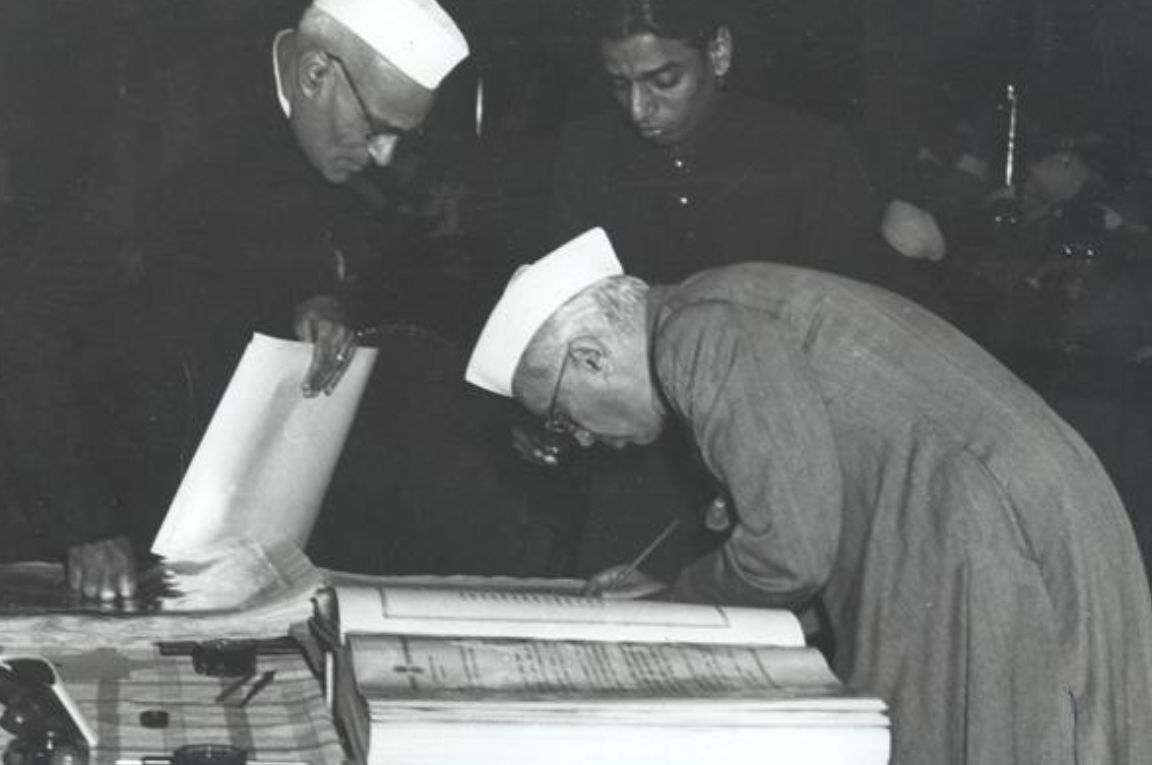Agriculture is the largest livelihood provider in India—an estimated 93.09 million households are classified as agricultural and between 90 and 150 million Indians are farmers. The typical farmer today is a marginal farmer who has less than 2 hectare of land and sees limited production volume and income from cultivation. With such low volumes, most sell their produce to local traders at low profit and are unable to engage in value-addition activities such as grading and sorting of produce or processing. Given their difficult financial situation, most farmers are also not in a position to delay the sale of their produce until market prices are higher.
The concept of farmer producer organisations was developed in the early 2000s to help farmers collectivise and start group enterprises, which would allow them to pool together their produce; trade in larger quantities; and, depending on their capabilities and funding, start value-addition activities and identify non-local buyers.
What is a farmer producer organisation?
A farmer producer organisation (FPO) is a legal entity that is owned and managed by farmers, which, in this context, includes cultivators, dairy producers, fishers, plantation owners, and others engaged in primary production in the agriculture sector. FPO is a generic term for farmer collectives and can refer to one of the following:

- A company (under the Companies Act)
- A cooperative society (under the Multi-state Cooperative Societies Act)
- A mutually aided cooperative society (under the Mutually Aided Cooperative Societies Act).
FPOs are one type of producer organisation; others include collectives of weavers and artisans. Since most farmer producer organisations in recent years have been registered as producer companies, the terms FPC and FPO are often used interchangeably.
Farmer producer organisations perform different kinds of functions. Many FPOs buy inputs (such as fertilisers and pesticides) from manufacturers in bulk for their member farmers in order to get significant discounts and better-quality products. Others focus on commodities produced by their members such as milk, grains, fruits, and vegetables. Among these, most sell the produce in bulk to traders or agents, and some sell their products after value addition to bulk buyers, retailers, or directly to consumers.
In order to generate farmer income and create more employment opportunities for small and marginal farmers, the government launched a scheme called the Formation and Promotion of 10,000 New Farmer Producer Organisations in February 2020. The scheme has a total budgetary outlay of INR 6,865 crore. Farmers with small and marginal holdings face multiple production challenges such as the inability to add value to their product, lack of access to technology, and low-quality seeds. This scheme is designed to combat these challenges. Some state government schemes and nonprofits with a rural development focus are also working towards the aggregation and promotion of FPOs.
Created by IDR with Datawrapper using this most recent data available of registered FPOs via Ministry of Agriculture and Family Welfare. Includes combined number of FPOs registered by SFAC, NABARD, and formation and promotion of 10,000 new FPOs scheme as of 2022.
How do farmer producer organisations work?
There are many different ways in which FPOs can operate. Most FPOs operate as stand-alone businesses, doing everything from aggregating the produce to grading, sorting, processing (if any), and marketing. FPOs can also be part of consortiums that may provide certain services such as connecting with buyers (called ‘market linkage’) or access to loans at better rates. Some FPOs are part of a two-tier structure where supplier FPOs focus on aggregating, sorting, and grading the produce, while a market-facing FPO adds value to the produce and markets and sells it.
However, there are some things that are common to all FPOs. The member farmers of an FPO provide the capital and have a stake in the company. A minimum of 10 shareholders are required to start a producer company. According to a 2020 report by Azim Premji University (APU), the majority of FPOs have an average of 200–250 shareholders. The composition of FPOs varies significantly—from large-scale farmers to small and marginal farmers as shareholders. The capital provided by the shareholders can be used as working capital to procure the produce of member farmers or to purchase equipment for storage and processing and other resources.

Promoting organisations and resource institutions, funders, and investors (government and non-government) are some of the other stakeholders in this ecosystem. To establish an FPO, either a group of farmers can come together and decide to form a producer company on their own, or a promoting institution (often a nonprofit) might convince a group of farmers about the benefits of forming a producer company. The law requires a minimum of 10 members, though most nonprofit-promoted producer companies aim for much higher numbers to pool together greater resources, as registering an FPO can cost anywhere from INR 20–40,000. Registration also makes it possible for the FPO to qualify for government schemes.

How are farmer producer organisations structured?
Since FPO is a generic category and refers to different types of farmer collectives, how it is structured and run depends on how and by whom it is formed. At the government level, there are several nodal agencies that facilitate the formation of FPOs, such as NCDC, NABARD, and SFAC. These agencies engage other organisations, such as nonprofits or consulting firms, to aggregate and support FPOs for a period of five years. FPOs formed under schemes started by state agriculture departments or by CSR arms of corporations may work differently.
As per NABARD guidelines, FPO members have to collectively specify the rules for a company’s operations and indicate which activities they can undertake. Some other guidelines are that the budget is approved by the member shareholders, the FPO’s performance is monitored by the board, and the CEO takes care of day-to-day affairs. But how an FPO functions can look vastly different in practice. In many cases, the nonprofit or promoting organisation that started the FPO will end up running the operations, simply because most Indian farmers do not have the business know-how required to run a company.
Why are farmer producer organisations important?
Collectivisation of farmers is not a new concept in India, and the Cooperative Credit Societies Act 1904 is one of the earliest legislations on farmer collectives. But most cooperatives have been unable to sustain themselves as member-controlled independent business entities due to a resource crunch and local political interference. This has led to excessive dependence on the government for funds, dormant membership, bureaucratic functioning, lack of capital formation, and so on. Therefore, FPOs seek to bring in primacy of a ‘business perspective’, which was previously lacking, to the cooperative model.
Collectivisation is considered beneficial to farmers because their incomes and landholding sizes remain low. According to the Agriculture Census 2015–16, small and marginal farmers whose landholdings are under 2 hectare account for 86 percent of all farmers and own just 47.3 percent of the total crop area. In addition, small and marginal farmers only make approximately 50 percent of their income from farming; the rest comes from working as wage labourers.
Lack of capital can block a farmer’s access to the market, but when capital is pooled, transportation and selling costs are minimised. Moreover, resources such as seeds, fertilisers, pesticides, and farm equipment may be too costly for individual farmers, so collectivising can enable them to buy these in bulk at wholesale rates. Collectivisation also helps in value addition to the product that can help minimise the losses incurred by farmers after harvest.
A lot of farmers are not able to sell their produce at remunerative prices—this can be because of small quantities of produce, low negotiating power, and not having the market linkages required to sell to anyone other than local intermediaries. FPOs can foster an environment of information exchange. Farmers also have more bargaining power against intermediaries and corporate entities when they act as a collective. Inconsistent pricing by intermediaries can result in fluctuation in market prices, but FPOs can ensure greater transparency and fairness in product pricing. All the members of a farmer producer organisation are stakeholders and get a say, which gives the decision-making power to women farmers as well if they are enrolled as members in the FPC.
What are the challenges faced by farmer producer organisations?
According to the APU report, one of the biggest challenges that FPOs face is raising the capital required to buy members’ produce or for performing activities such as value addition. It can be difficult to convince farmers to become FPO members and put in their money at the outset. If monoculture (growing one crop per season such as wheat or rice) is the dominant practice, then it can take multiple procurement cycles to get more people to join the FPO. If only some farmers join in a given year, then there may have to be multiple seasons of successful procurement to get non-member farmers to become members.
The report also mentions that FPOs find it difficult to attract and retain skilled professionals who can discharge CEO and other managerial responsibilities. FPCs need to be commercially successful to be sustainable, so having people with business acumen on board is essential. Studies cited in the report have listed “poor inventory management, lack of skills for developing feasible business plans and managing the business” as some of the reasons that producer companies are unprofitable. Although there has been a sharp rise in the number of FPOs, a lot of them struggle to function, and many have gone defunct.
In 2017, a national conference on FPOs organised by the Institute of Rural Management Anand brought together academics, researchers, and FPO representatives. These are some of the challenges mentioned by the FPO representatives.
- Lack of member loyalty: This can happen when the member farmers’ expectations of the FPO are not met. They then end up selling their produce wherever they get the highest price. There is also lack of awareness about the benefits of becoming a member.
- Low capacity for governance: This is due to the low level of literacy among farmers; limited awareness on how to run an FPO; and lack of time. Running an FPO also requires some knowledge of bookkeeping and of financial provisions and laws that the FPO needs to comply with. All of this can be too cumbersome for farmers, and hiring professionals is unaffordable.
- Lack of consistency in policy: There are many different types of farmer collectives that can operate in any setting, and policies do not cater to the needs of FPOs. There are disparities regarding credit availability, the price at which fertilisers can be procured, and minimum support price (MSP) availability.
Jasmine Bal and Srishti Gupta contributed to this article with inputs and insights from Richa Govil, Emmanuel Murray, Arjuna Srinidhi, and the report Farmer Producer Companies: Past, Present and Future.
—
Know more
- Learn more about the emergent challenges and opportunities related to FPOs.
- Read about a day in the life of an adivasi women who manages an FPO in Maharashtra.
- Listen to this podcast that discusses the importance of FPOs in Indian agricultural system.



